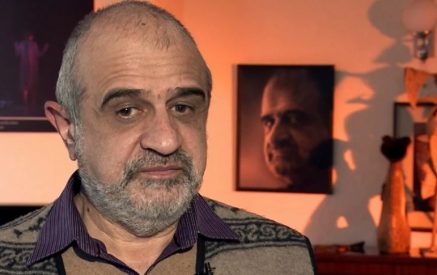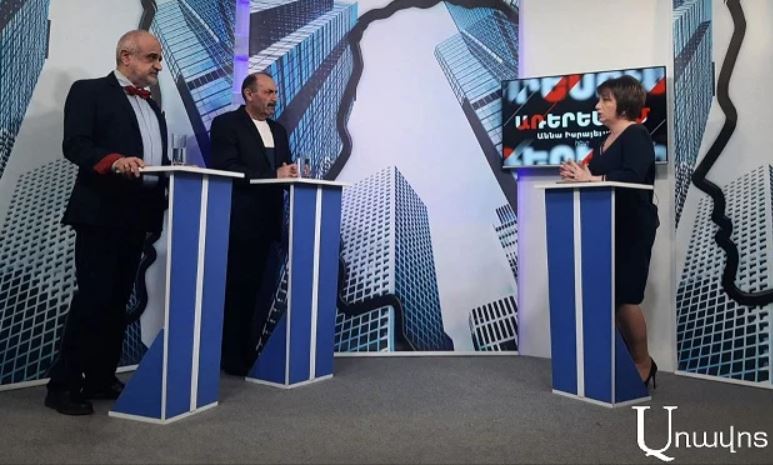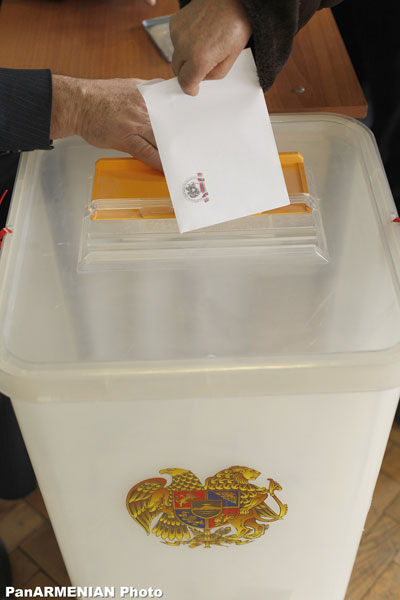Armenian theatres without patrons
Yerevan Puppet theatre after Hovhannes Toumanyan is one of the most established cultural centres in Armenia. It hasn’t stopped functioning even in energy crisis, on severe winter days when there were regular power cuts. The theatre takes most tours and for young artists in Armenia it is the place where they can express themselves and vent their creativity. The theater also targets adults with its unique performances.
Ruben Babayan, the art director of the theatre states that the theatre has a range of needs but the financial one is not the key one. “State support is imperative for theaters in any country; even in a country like USA where patronage and sponsorship are increasingly popular, theatres are those rare cultural institutions which also rely on state support”, says the artist and argues that one should not rely solely on state support, as it has more important issues to consider.
Read also
Ruben Babayan regrets that over its 25-year period of independence Armenia has not adopted any laws on sponsorship. “It’s not only a matter of funding; one has to make art business-oriented for business people to support arts. This is significant not only in terms of funding arts but also promoting the role of art in society. Society likes following the lead of successful people. When it sees those people and organisations that have earned success in business lending their support to art, they have their value system reshaped. Very often we relate some issues to state funding but this leads to a fossilized state structure.
Law states theaters to be state non-commercial organisations and this type of organisations are not subject to any flexible changes. Creative work implies other type of work relations, whereas theatres like structures pertaining to other spheres, function within the framework of the same labour code, entailing recruitment, probation period, contracting, payroll, etc.
This kind of bureaucracy leads to the stagnation in creative industries where one needs to be as much free as possible in communication with people. Our legislative field is terribly ossified and there seems to be no visible difference between say sausage production and performing arts. Law on Procurement, for instance, does not consider the possibility of a theatre to produce exclusively. When we stage a performance, we do not go for the cheapest materials but for the required ones. Exclusive production should follow other rules and regulations.”
Ruben Babayan believes theatre stagnation to be due to the fixed payrolls and positions in the company. “The experience of other theatres shows that those actors who are on several payrolls either do not play any roles in performances or play maximum one or two roles per month. They never get fired, though, to avoid social issues coming up. Unfortunately, the pension issues of people involved in creative industries have not been resolved yet. Nobody knows how long they will be able to use their creative potential but those artists excelling in performing talent should get a decent pay to be able to give the younger talented generations their place. Trade unions are just a lip service in our country and nobody respects the rights of creative industries workers.”
When the state status is an impediment
In Armenia, theatres very rarely rely on the support of international foundations or manage joint projects. The Puppet Theatre is a lucky exception. Narine Grigoryan, the theatre’s producer, has recently joined an Armenian-Swiss project, where she was the performance director and the scenographer was from Switzerland.
Ruben Babayan says that this kind of international foundations mostly support private industries and the status of a state organisations can hinder, as the respective foundations finance non-governmental organisations.
“State status and state support are two things often confused in our country. Most European countries would be jealous of the number of state theatres we have in Armenia. This does not imply, however, that state theatres enjoy the full support of the government. It would be better to retain state support with not all theatres enjoying the status of a state organisation. International foundations think if you have a state status, the state takes care of your needs, whereas the state only extends some assistance.”
Small budget complemented with creativity
We asked the theatre director whether it was possible to run an interesting project on a low budget. “It’s not important for an effective idea to be conceived only when one has a very high budget. All our performances that are increasingly popular abroad were staged on a low budget and did not rely on state support. It’s all about the right approach. When you see a creative team coming up with interesting ideas, you should assist them to give these new ideas an interesting format. Very often we face the opposite when we are asked to provide money for them to come up with something. By the way, Peter Brook, outstanding English theatre and film director, used to say that one just needs supporters to be able to realize good ideas. I do not tend to think either that one necessarily requires a large amount of money for creative ideas. Still, the people who are planning to realize these ideas should be given a green light.”
Green light to the young
Ara Khzmalyan, the president of the National Theatre Union, also thinks that theatres can succeed both with a low state budget and without it. “The issue with theatres is not a financial one but the result of unreasonable budget allocation and the absence of fixed mechanisms. Once there is a reasonable allocation of the subsidies granted to the theatre, it may be possible to create the right atmosphere and draft proper laws. Our theatres lack professional actors and creative teams. Instead of wasting money on dying institutions for years, we can have our talented youth get a good education, network, watch good performances, experience the European culture and life for them to have a fresh new outlook on things. We need to provide them with all of this for them to come back and to invest their rich experience in Armenia. I can see problems in problems in budget allocations strategies, rather than in budget limits here.” This is what Ara Khzmalyan thinks. He has already discovered his personal way of encouraging young artists through Theatre X, an annual festival targeting young artists. Some of the participants of the festival have already paved their way to international ones.
Theatres should dismiss bureaucracy
We asked the president of the National Theatre Union what the Armenian theatres needed most. “It’s rejuvenation our theatres need most, as they have been transformed them into ossified systems, destined to failures. We have to address rejuvenation. Otherwise, whatever means we resort to, whatever budget is allocated, nothing will change, unless we have young people endowed with modern interesting mentality, people who see their future in Armenia, professionals who can be trusted leverages. To put it in a nutshell, personnel policy should be redressed before considering financial issues. Funds cannot affect the performance of a theatre company if is headed by someone with outdated views. Even if the theatre is allocated 5 million Euros monthly, it won’t be able to use the money to meet its needs. And at the same time, limited amounts of money grated to gifted young working people can yield great results.”
Ara Khzmalyan agrees that staging performances on the state budget might impose some restraints on the theatres. “We have to reconsider our repertoires based on surveys. In the former Soviet Union, Petersburg School, for instance, used to conduct special polls to identify the needs and the mood of the theatre-goers, special teams made up of psychologists, sociologists, theatre and art critics used to study the popularity of the staged performances among the audience, as well as their response to it. Whereas, today we do not even know who our target audience is. It’s like making a paper plane and flying it out of the window, its destination unbeknownst to us. We have invested our entire state budget in this “plane” and do not know who and where it will reach. This problem is due to wrongly-developed cultural strategies.”
It’s not the law that identifies the needs of the theatre
Yervad Manaryan, an outstanding producer, actor, founder and director of “Agulis” theatre, disagrees with his colleagues that theatres should rely on state support. His “Agulis” survives without it. At press conferences, Yervand Manaryan always states that in case of any financial assistance, the state will be willing to guide the theatre and limit its freedom, whereas theatres function to address social issues in their artistic work.
He is also confident that there is no need for any laws on the theatre, as it’s not the law that determines the shoulds and shouldn’t in the theatre.
Gohar HAKOBYAN































































